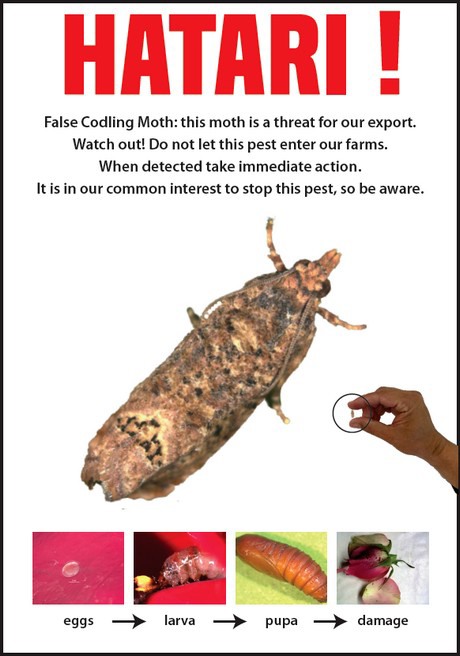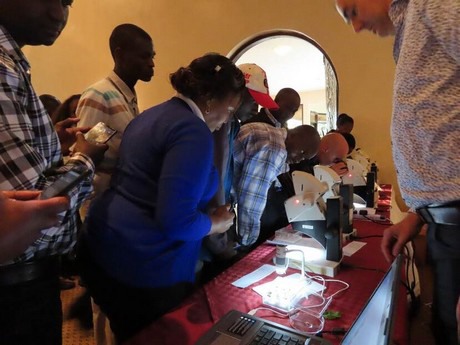The False Codling Moth (FCM), also known as Thaumatotibia leucotreta, is a pest, which is present on more than 70 host plants crops like roses, citrus, peppers (Capsicum spp.), maize etc. making it a challenge to control it. FCM is an economically important pest for roses as it causes crop damage and is categorized as a quarantine pest by the European Union (EU). The Kenya Plant Health Inspectorate Services, the Kenya Flower Council and the Netherlands Government therefore joined efforts to stop this pest.

Economic impact of FCM interceptions
In the conference room of a hotel in Naivasha, the distinct anticipation could be seen on the faces of the participants in the room. Over 200 participants from the floriculture sector were gathered for a training on the False Codling Moth (FCM). The large turnout underlined the importance of addressing the threat of FCM.
Already several rose growers have incurred financial losses due to interceptions in the EU of their produce. These interceptions have led to an increase in checks from 5% to 10% on import inspections into the EU. These checks affect all Kenyan rose exporters. An integrated approach by the floriculture sector in dealing with the challenge of FCM is therefore crucial.
In July 2019, Kenya and the Netherlands signed a framework for agriculture cooperation. As a result of this, a technical training was organized in September 2019. The training was facilitated by experts from the Dutch Quality Control Bureau (KCB) and Netherlands Food and Consumer Product Safety Authority (NVWA) in collaboration with Kenyan Plant Inspectorate Services (KEPHIS) and the Kenya Flower Council (KFC). Working together allowed the exchange of knowledge and experiences from both Kenya and the Netherlands.
Trainings on identification of FCM
The first part of the training included KEPHIS inspectors and scouts from some farms in Nairobi. This was followed by a workshop for rose growers in Naivasha where companies shared the approaches and products they are using to control FCM. During the Naivasha Hortifair, growers and farmers had a chance to interact with the experts on FCM.

The experts from the Netherlands gave detailed information on how to identify the moth during the various trainings. For more information on the moth and identification see this article on the EPPO (intergovernmental organization responsible for cooperation in plant health within the Euro-Mediterranean region) website. The training was a success thanks to the interaction and cooperation between the private sector and government institutions. The sector players agreed on working together to control the spread of this pest. The training presentations can be found by clicking the links at the bottom of this article.
For more information: Kenya Flower Council
Kenya Flower Council
Suite 12, 4th Floor,
The Greenhouse Building,
Adams Arcade, along Ngong Road
Mobile: (254) (0)733 639 523
[email protected]
kenyaflowercouncil.org
